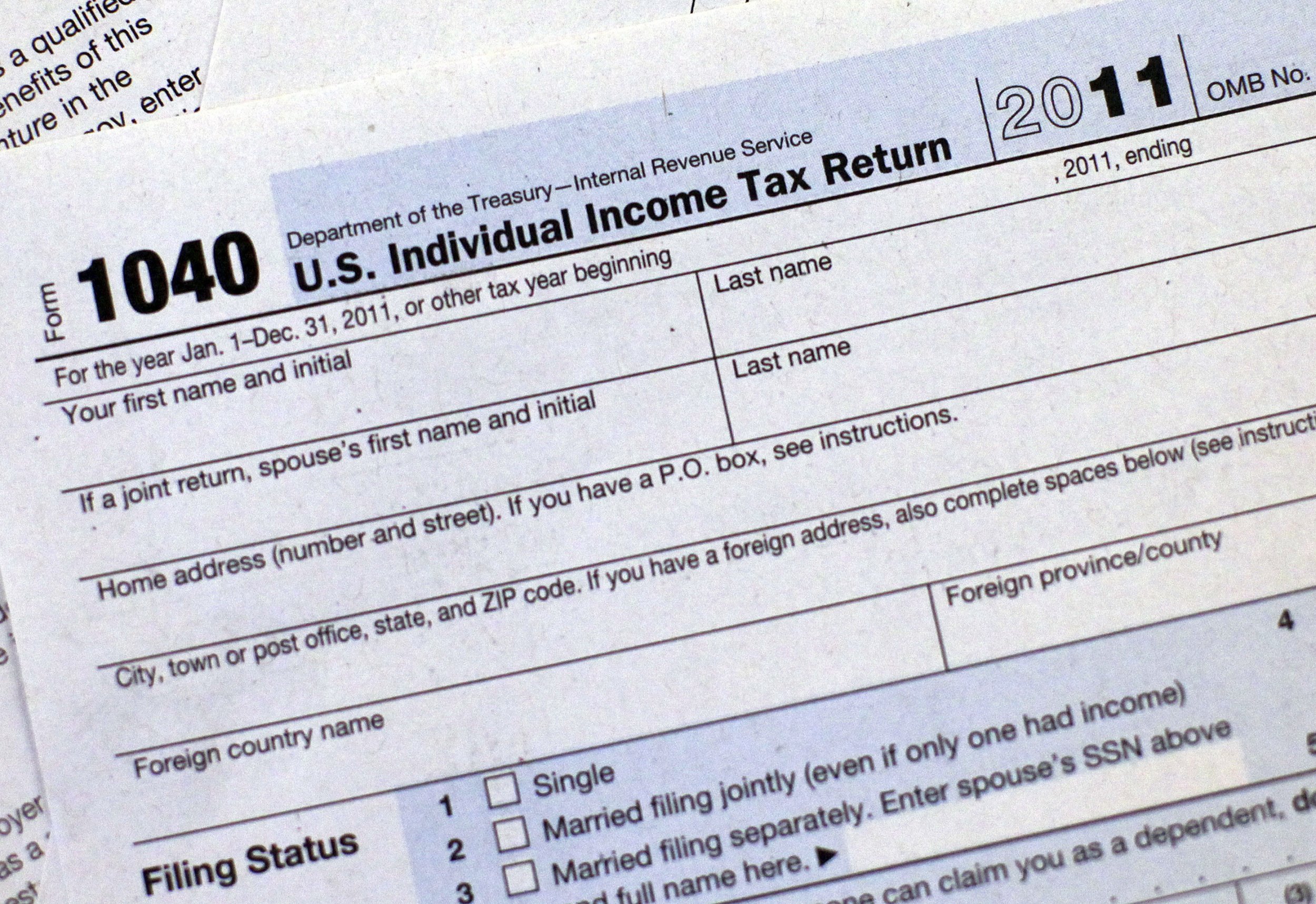
President Donald Trump and congressional Republicans have unveiled a long-awaited outline of their tax reform plan that will affect all American individuals and businesses, but one big thing was left out: how to pay for it.
It's not exactly clear how much the plan would increase the federal deficit, which is $693 billion during the current fiscal year, which ends this month, but estimates say the proposal could add more than $2 trillion to the national debt over the next decade. The national debt is currently over $20 trillion (more than 100 percent of U.S. gross domestic product), a level that worries many economists and policy analysts.
The outline of the plan does not itemize the costs of the proposed tax changes, so independent groups and analysts are left to make their own guesses as to the costs.
"My biggest concern is the price," says Marc Goldwein, senior vice president and senior policy director for the Committee for a Responsible Federal Budget, an independent watchdog group whose latest analysis puts the cost of the new tax reform plan at more than $2 trillion over the next decade. "When the national debt is at its highest levels since World War II, I don't see how this is the solution," he told Newsweek.
According to an estimate from Kyle Pomerleau, director of federal projects at the Tax Foundation, up to $5 trillion could be added to the deficit if all of the GOP ideas on this wish list were enacted.
The document was released on Wednesday morning. President Trump flew to Indianapolis later that afternoon to deliver a speech promoting the tax reform. "Our plan will make the tax code simple, fair and easy to understand," he said. Not coincidentally, Indiana is the home state of Senate Democrat Joe Donnelly, who faces a tough reelection bid next year. The president is seeking bipartisan support for his plan, especially from red-state, moderate Democrats such as Donnelly, a first-term Indiana Senator. Earlier this month, as part of his campaign for tax reform, the president flew to North Dakota, where that state's Democratic senator, Heidi Heitkamp, will also have to battle to keep her seat in 2018. Trump won both Indiana and North Dakota handily in 2016.
But despite the president's efforts, tax reform is extremely complex and politically contentious, and its chances of passage are slim. The last time the U.S. overhauled the tax code was 1986, and that happened following a determined bipartisan effort of congressional Democrats and Republicans as well as the Treasury Department under President Ronald Reagan, which came up with a 450-plus-page proposal. In contrast, Trump's new plan is a nine-page document.
Such as it is, the plan would lower and simplify tax rates for individuals, replacing the current seven rates with just three: 12 percent, 25 percent and 35 percent. And it would lower the corporate rate to 20 percent from the current 35 percent. The statutory U.S. corporate tax rate is among the highest in the world, and it has been a source of concern for both Democrats and Republicans, who believe it hurts American competitiveness. By the time deductions are thrown in, though, the actual corporate tax rate is closer to the middle of the pack and is still higher than many in both parties would like.
While the new tax reform plan would cut taxes less than some previous tax reform strategies, such as House Speaker Paul Ryan's "Better Way," it would still reduce taxes dramatically—especially for wealthier earners. This is because it would lower their rates and eliminate some taxes that benefit this income group exclusively, such as the estate tax, which exempts the first $5.5 million in inheritance for individuals.
Some of the costliest items in the Trump-GOP plan focus on small-business owners, freelancers and others who currently have their income taxed at higher individual rates, as much as 39.6 percent. Instead of passing their business income through this high individual rate, they could be taxed at 25 percent. This "pass thru" change would be a big win for many sole proprietorships, partnerships and S corporations.
There's considerable debate about the benefit of cutting corporate taxes so much, as well as of allowing more small businesses to take advantage of the low pass-thru rate. The lower corporate rate could help pay for some of its costs in the long run, according to some analyses, because it would create more economic growth and bring about the "repatriation" of more than $2 trillion in cash that American corporations are keeping overseas rather than bringing back to the U.S., where they would face a high corporate rate. But 20 percent is a very low figure. The deficit-slashing Simpson-Bowles commission only got it down to 28 percent, a more possible target.
The plan is also likely to renew interest in President Trump's taxes and his lack of disclosure: He is the first president since Richard Nixon to refuse to release his returns. The president has said that he won't relinquish them because he is under audit from the IRS, but no law or regulation prohibits a person under audit from releasing returns. Additionally, the president has not produced an "audit letter" from the IRS proving that he is, in fact, under such scrutiny. The public is left having to take him at his word.
Uncommon Knowledge
Newsweek is committed to challenging conventional wisdom and finding connections in the search for common ground.
Newsweek is committed to challenging conventional wisdom and finding connections in the search for common ground.
About the writer
Matthew Cooper has worked for some of America's most prestigious magazines including Time, The New Republic, National Journal, U.S. News ... Read more





